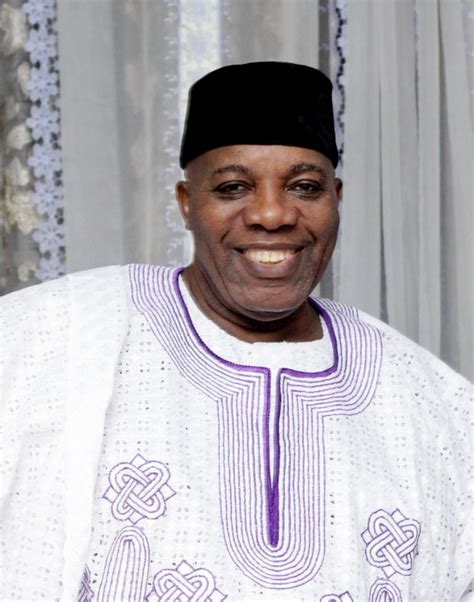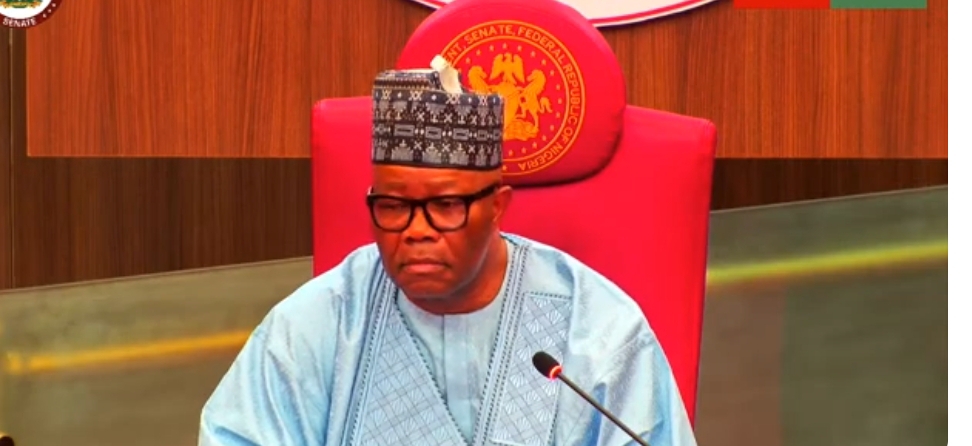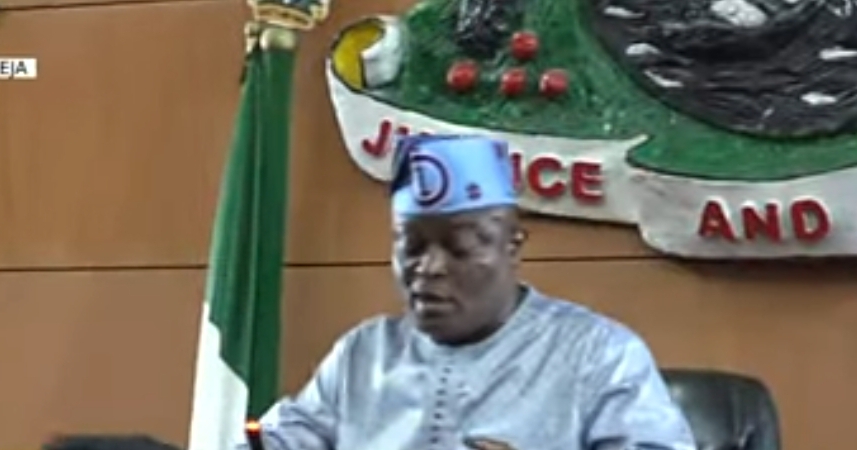Nigeria News
Doyin Okupe Passed on at 71
 On Friday, March 7, 2025, President Bola Tinubu led tributes following the death of Dr. Doyin Okupe, a former presidential spokesman, who passed away that morning at the age of 72. In a statement is
On Friday, March 7, 2025, President Bola Tinubu led tributes following the death of Dr. Doyin Okupe, a former presidential spokesman, who passed away that morning at the age of 72. In a statement is
 On Friday, March 7, 2025, President Bola Tinubu led tributes following the death of Dr. Doyin Okupe, a former presidential spokesman, who passed away that morning at the age of 72. In a statement issued by his Special Adviser on Information and Strategy, Bayo Onanuga, President Tinubu expressed deep sorrow over Okupe’s passing, describing him as a medical doctor, politician, communicator, and strategist who played "a significant role in Nigeria’s political landscape." The President highlighted Okupe’s bold and articulate advocacy for national development, noting that his death occurred at a time when his wealth of experience and insight remained invaluable to the nation.
On Friday, March 7, 2025, President Bola Tinubu led tributes following the death of Dr. Doyin Okupe, a former presidential spokesman, who passed away that morning at the age of 72. In a statement issued by his Special Adviser on Information and Strategy, Bayo Onanuga, President Tinubu expressed deep sorrow over Okupe’s passing, describing him as a medical doctor, politician, communicator, and strategist who played "a significant role in Nigeria’s political landscape." The President highlighted Okupe’s bold and articulate advocacy for national development, noting that his death occurred at a time when his wealth of experience and insight remained invaluable to the nation.Senator Natasha Akpoti-Uduaghan Suspended by the Senate
 As of March 6, 2025, Senator Natasha Akpoti-Uduaghan, representing Kogi Central in the Nigerian Senate, has been suspended for six months. This development follows a series of events that escalated te
As of March 6, 2025, Senator Natasha Akpoti-Uduaghan, representing Kogi Central in the Nigerian Senate, has been suspended for six months. This development follows a series of events that escalated te
 As of March 6, 2025, Senator Natasha Akpoti-Uduaghan, representing Kogi Central in the Nigerian Senate, has been suspended for six months. This development follows a series of events that escalated tensions between her and Senate President Godswill Akpabio, culminating in her suspension by the Senate on Thursday, March 6, 2025.
As of March 6, 2025, Senator Natasha Akpoti-Uduaghan, representing Kogi Central in the Nigerian Senate, has been suspended for six months. This development follows a series of events that escalated tensions between her and Senate President Godswill Akpabio, culminating in her suspension by the Senate on Thursday, March 6, 2025.
Background
The controversy began on February 20, 2025, when Senator Natasha protested a reassignment of her seat in the Senate chamber, which she claimed was done without her consent. This led to a heated exchange with Senate President Akpabio, who ordered her removal from the session. Following this incident, Natasha accused Akpabio of sexual harassment and abuse of office, alleging that her troubles in the Senate stemmed from rejecting his advances. She submitted a petition to the Senate detailing these claims, which was dismissed by the Senate Committee on Ethics, Privileges, and Public Petitions on procedural grounds.
Suspension Process
On March 6, 2025, the Senate Committee on Ethics, chaired by Senator Neda Imasuen, presented its report during a plenary session. The committee found Natasha guilty of "unparliamentary conduct" and violating Senate rules, citing her confrontation with Akpabio and her subsequent allegations. The panel recommended a six-month suspension, effective immediately, which the Senate adopted via a majority vote. Reports indicate that Natasha was not given an opportunity to speak in her defense before the vote, a point that has sparked criticism.
Terms of Suspension
The suspension includes several punitive measures:
Natasha is barred from all legislative activities and from accessing the National Assembly premises.
Her office is to be locked, and she must return all Senate properties in her possession.
Her salary, security details, and other allowances are to be withdrawn during the suspension period, though some reports note that her aides' salaries may continue following an intervention by Senator Orji Uzor Kalu.
She is prohibited from representing Nigeria in any official capacity as a senator, both locally and internationally.
The committee stipulated that the suspension could be reviewed if Natasha submits a written apology to the Senate.
Natasha’s Response
Following the suspension, Senator Natasha described the decision as an "injustice" that "will not be sustained." In a statement reported on March 6, 2025, she expressed determination to challenge the ruling, though specific legal or procedural steps she might take remain unclear at this time. She had previously claimed during an Arise News interview that Akpabio blocked her motions in the Senate and suggested she meet him privately, where he allegedly implied she would benefit from complying with his advances.
Public and Media Reaction
The suspension has generated significant attention. Some observers have questioned the fairness of the process, noting the lack of a formal investigation into Natasha’s harassment allegations and the denial of her chance to speak before the vote. Others see the suspension as a consequence of her defiance of Senate protocol. The situation has been widely covered by Nigerian media outlets, including BBC News, Channels Television, and The Punch, with reports highlighting both the official narrative and Natasha’s counterclaims.
Context and Implications
This incident marks a rare and high-profile disciplinary action within the Nigerian Senate, raising questions about internal governance, gender dynamics, and the handling of misconduct allegations in the legislative body. Akpabio has denied the harassment claims, calling them unfounded and affirming his respect for women. The suspension, effective from March 6, 2025, will run until early September 2025 unless altered by a Senate .
Senate Plenary on 5th March, 2025
 Based on the information provided about the Live Senate Plenary session from Wednesday, March 5, 2025, here is a comprehensive report:
Based on the information provided about the Live Senate Plenary session from Wednesday, March 5, 2025, here is a comprehensive report:
 Based on the information provided about the Live Senate Plenary session from Wednesday, March 5, 2025, here is a comprehensive report:
Based on the information provided about the Live Senate Plenary session from Wednesday, March 5, 2025, here is a comprehensive report:Lagos House of Assembly: Mudashiru Obasa Reclaims Speakership in Dramatic Turn of Events
 Lagos, March 3, 2025 – In a stunning reversal of fortunes, Mudashiru Obasa has reclaimed his position as Speaker of the Lagos State House of Assembly, capping weeks of political upheaval that grippe
Lagos, March 3, 2025 – In a stunning reversal of fortunes, Mudashiru Obasa has reclaimed his position as Speaker of the Lagos State House of Assembly, capping weeks of political upheaval that grippe
 Lagos, March 3, 2025 – In a stunning reversal of fortunes, Mudashiru Obasa has reclaimed his position as Speaker of the Lagos State House of Assembly, capping weeks of political upheaval that gripped Nigeria’s economic hub. The development unfolded on Monday afternoon, following the resignation of Mojisola Meranda, the state’s first female speaker, who had held the gavel since Obasa’s impeachment on January 13, 2025.
Lagos, March 3, 2025 – In a stunning reversal of fortunes, Mudashiru Obasa has reclaimed his position as Speaker of the Lagos State House of Assembly, capping weeks of political upheaval that gripped Nigeria’s economic hub. The development unfolded on Monday afternoon, following the resignation of Mojisola Meranda, the state’s first female speaker, who had held the gavel since Obasa’s impeachment on January 13, 2025.
